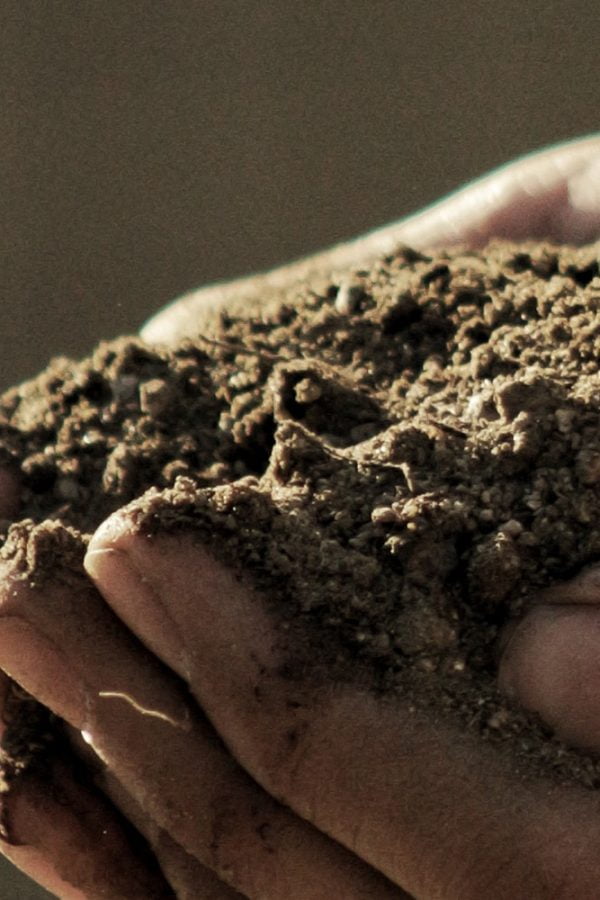How is hemp different to other plants?
The most important difference is that the cannabis plant has an extremely high absorption ability that allows it to pull out nutrients from the soil more efficiently than other plants.
But that’s a good thing, isn’t it?
Well, yes and no. It depends on the quality of your soil.
Hemp plants will absorb virtually everything, so whatever is in the soil will end up in the plant. This includes all the good things like potassium, calcium, magnesium, phosphorus and sulphur, but it also means the bad things get drawn up as well. This can include heavy metals, mycotoxins, pesticides and other poisons. The cannabis plant doesn’t distinguish between toxins and nutrients, or between natural and synthetic contaminants, everything gets drawn up into the plant.
So, if you’re not careful about where you source your CBD from, there is a good chance that you’re putting more than pure CBD into your body.
The technical term for this is bioaccumulation.
What are bioaccumulation and phytoremediation?
Industrial hemp is considered to be a “bioaccumulator” and a“phytoremediator.”
Bioaccumulation means that it absorbs chemicals and pesticides at a faster rate than can be excreted, causing them to build up in the plant.
Why do we care? Because bioaccumulation has real-world applications in the form of phytoremediation.
The term phytoremediation can be broken down into “Phyto” (related to plants) and “remediation” (to remedy), and from there we get the meaning “to remedy with plants”.
When bioaccumulators are grown in contaminated soil or groundwater, they absorb a large amount of the contaminants present, making the area cleaner and safer. Plants that are commonly used for this purpose include hemp and other cannabis strains, as well as mustard, pigweed and alpine pennycress. The efficacy of hemp in phytoremediation extends even to nuclear contamination, and it has been used as part of the clean-up plan for the Chernobyl site.
What are the health impacts of soil contamination?
If you consume products from hemp grown in poor quality soil, you are potentially putting yourself at risk. Continued exposure to elevated levels of heavy metals, can cause a host of degenerative physical and neurological conditions,including muscular dystrophy, Parkinson’s and Alzheimer’s. In less extreme cases, heavy metal poisoning can lead to vomiting, diarrhoea, vomiting, dehydration, numbness and weakness.
Pesticide poisoning includes diarrhoea, dizziness, and even death. They’re also linked to causing cancer. Mycotoxins can cause liver cancer, gangrene, respiratory issues and a host of other unpleasant symptoms.
But is bioaccumulation all bad? Definitely not!
Is there a positive side to hemp’s absorption abilities?
There are positive effects that come from hemp’s bioaccumulation properties, most notably in the growing of hemp. Industrial hemp is able to extract nutrients from the soil effectively, putting them to use as it grows strong and resilient. It’s because of this that cannabis plants can thrivealmost anywhere, in a wide variety of soil types, because they’re so good a taking what they need from where they are planted.
What do you need to keep in mind about growing hemp?
Hemp is incredibly hardy and grows in extreme environments;it’s also naturally resistant to disease and pets. Add to that the fact that it’s fast-growing and has low water requirements, and you have the makings of an ideal crop.
Hemp crops don’t need insecticides, pesticides, chemicalfertilisation or irrigation. The plant thrives in a northern hemisphere climate which is why it’s one of the most popular crops throughout Europe and North America.
If you’re buying CBD oil made from EU-approved hemp strains produced in Europe, you have peace of mind that it has been grown organically. In general, hemp farms in Europe are well-regulated, so you know that the crops have been grown in contaminant-free soil and can, therefore, be consumed safely.
This also extends to the harvesting of hemp, with many farmers choosing to harvest industrial hemp by hand to ensure that the plants are not exposed to heavy machinery or toxins.
Why is testing so important?
Now that we’ve looked at the pros and cons of bioaccumulation, it’s important to understand the impact for the end consumer. Because of the potential for harm when using contaminated CBD products, it’s essential to only use brands that provide the results of their third-party lab testing and have a commitment to only using the best quality CBD for their products.
There have been many studies done on the quality of CBD sold by high street retailers and well-known brands, and the results are disturbing. In a study conducted by the Centre for Medicinal Cannabis, researchers tested the content of 30 different CBD oil products available in the UK. They were selected for blind testing using a reputable UK-based laboratory.
The study concluded that only 38% of the products contained the advertised level of CBD, 38% had less than 50% of the advertised CBD amount and one contained no CBD at all. Nearly half of the products contained higher-than-legal levels of THC, while one had 3.8% ethanol. Some even contained solvents and heavy metal with seven of the products containing dichoromethane and one cyclohexane.
—
So, with all this in mind, it becomes easy to see how soil quality is absolutely vital for producing high-quality, safe, effective CBD. In the UK, most CBD products are made from industrial hemp grown in Europe and North America, both of which have strict laws and regulations governing the growth of hemp. But, poor quality CBD still slips through the cracks, which is why you need to check the third-party lab reports before deciding which CBD product to use.

